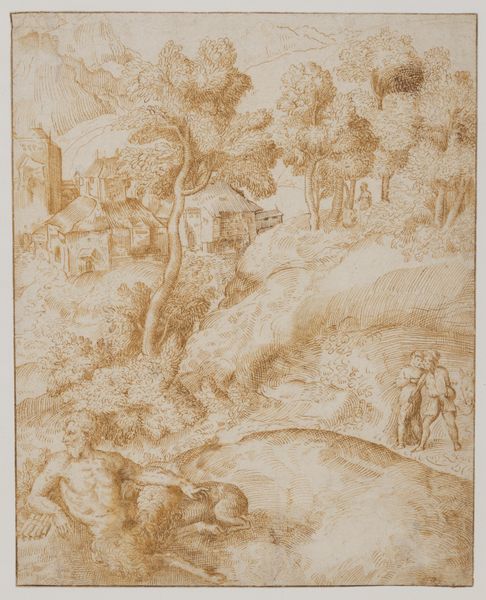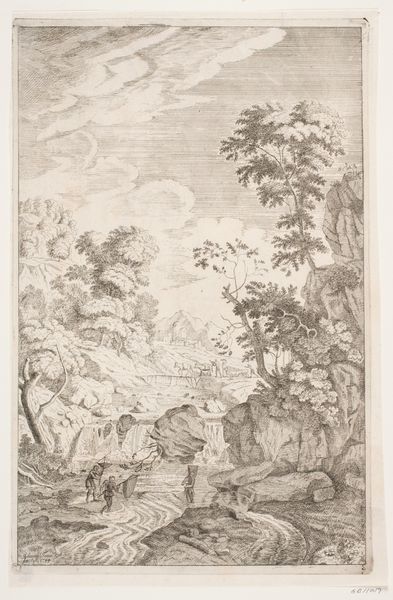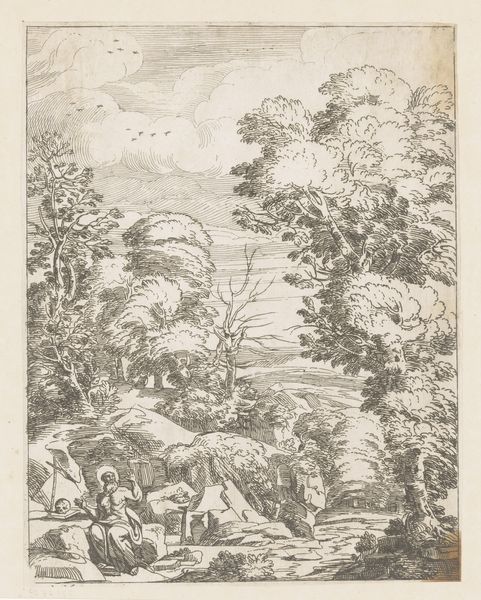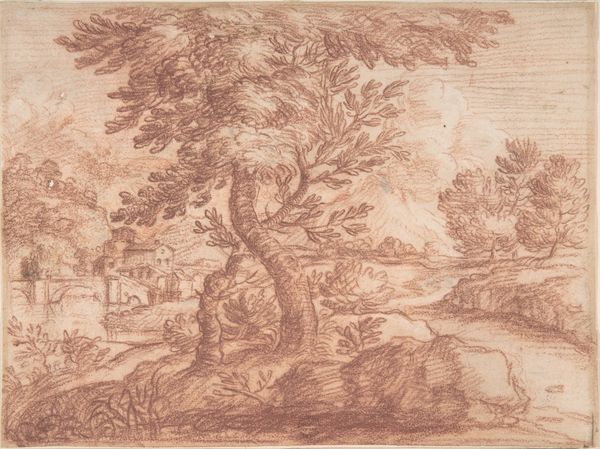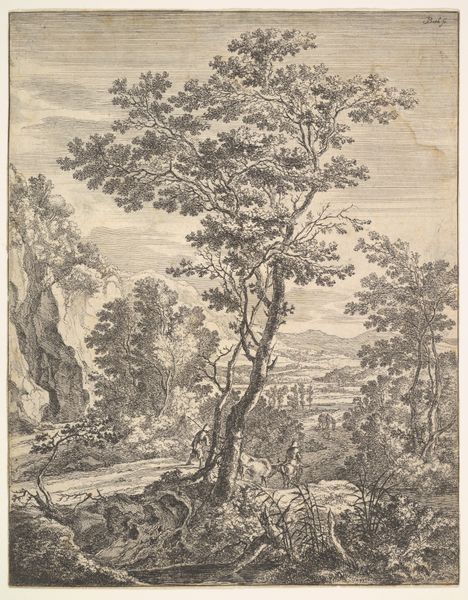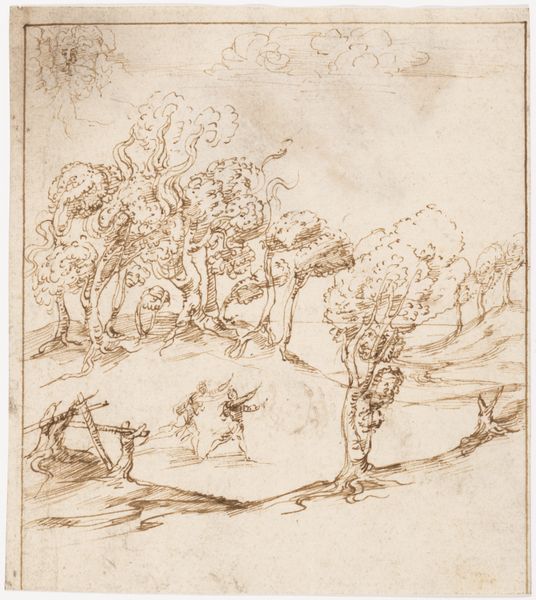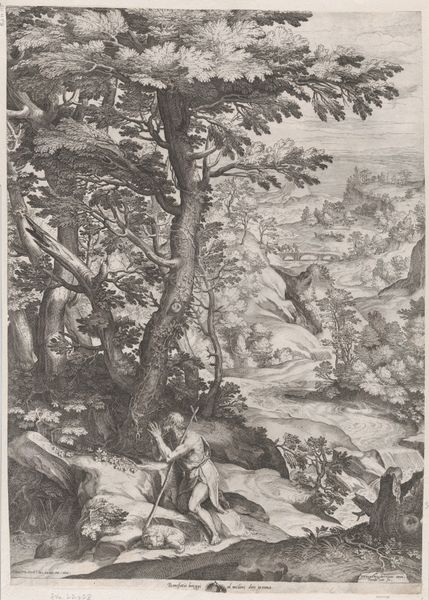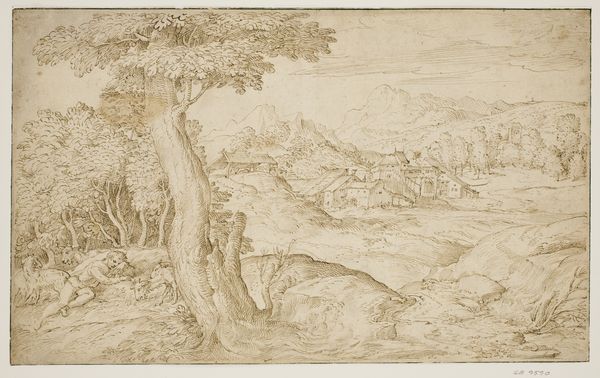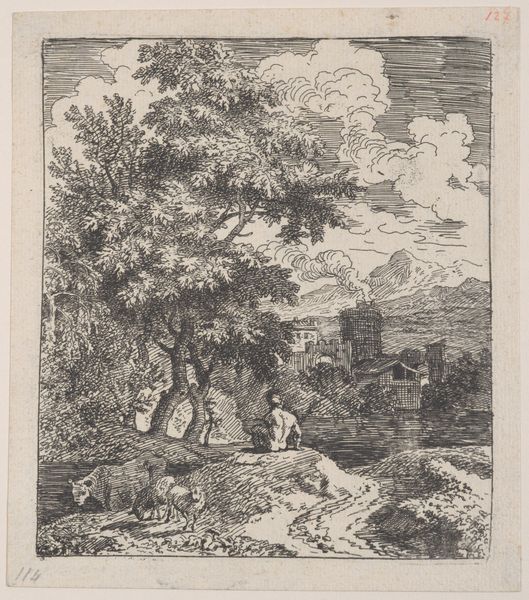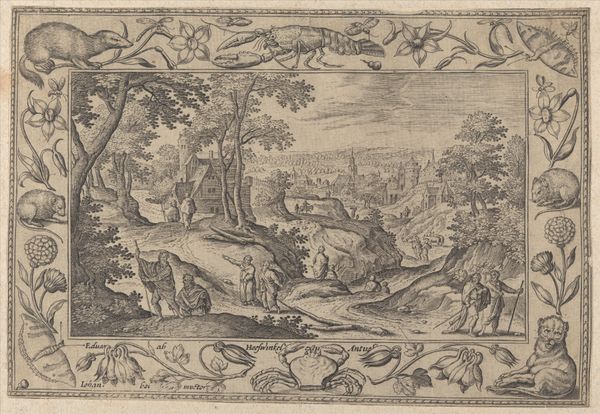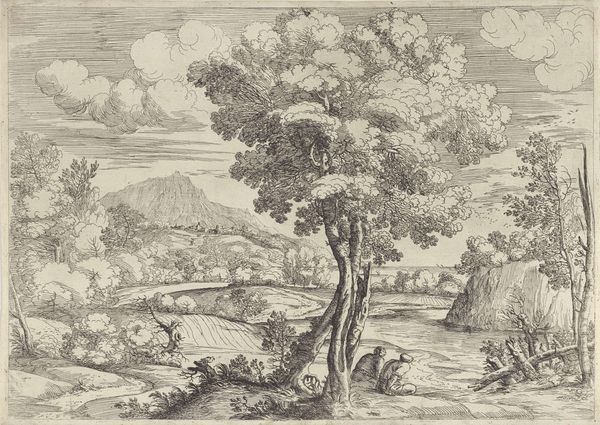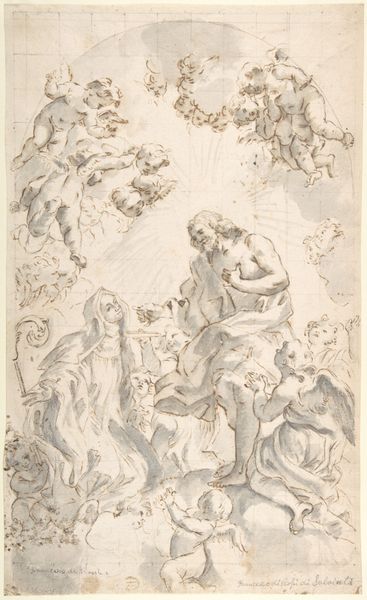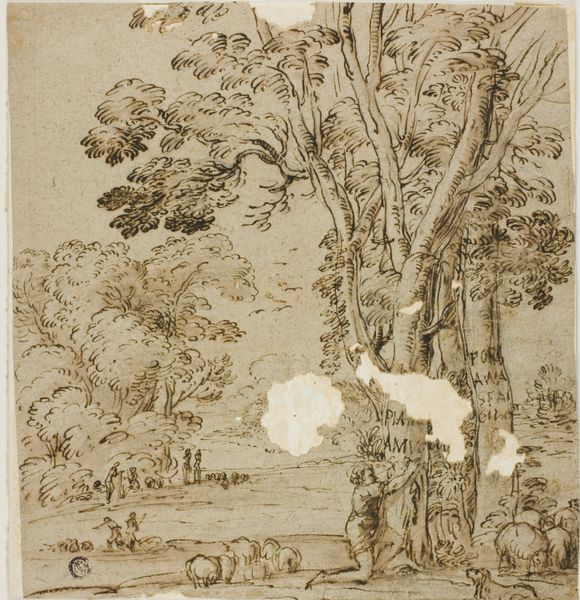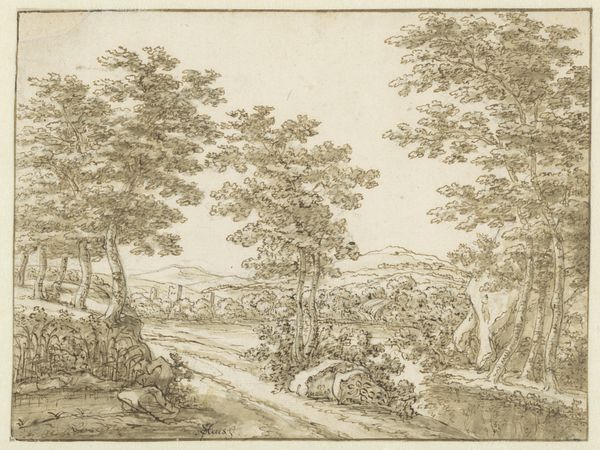
drawing, print, ink
#
pen and ink
#
tree
#
drawing
#
ink drawing
#
pen drawing
#
animal
# print
#
pen illustration
#
pen sketch
#
landscape
#
figuration
#
ink
#
men
#
history-painting
Dimensions: sheet: 11 x 7 1/16 in. (28 x 18 cm)
Copyright: Public Domain
Curator: Here we have Joseph Anton Koch's "The Triumph of Bacchus," dating sometime between 1768 and 1839. It's a pen and ink drawing, and quite detailed. Editor: It certainly is! At first glance, there’s a lightness to it, almost ethereal. The pen work gives the scene a lively feel, but there's something quite disorderly unfolding. A bit chaotic, don't you think? Curator: Koch was deeply interested in the Romantic movement, using classical subjects to explore the power of nature and human emotion. In his time, idealized visions of antiquity served diverse socio-political projects of nation building and colonialism. Editor: Ah, yes! It’s so important to think about how interpretations of the classics have often excluded marginalized perspectives. The depiction of Bacchus' triumph, particularly with these revelers, makes me consider the implications of celebrating unchecked hedonism and who gets to participate in this perceived "freedom". Are these scenes truly celebrations, or do they also serve as cautionary tales, reflecting societal anxieties about power and control? Curator: These bacchanalian scenes were commonly commissioned in grand houses; this print could well have served as inspiration. What's intriguing is how Koch interprets it through a German Romantic lens, blending the classical with the sublime. It almost prefigures modern interpretations of landscape, especially in its loose handling of space. Editor: Absolutely, that historical framing matters. Seeing how these mythological narratives are employed and reinterpreted across different eras helps us decode prevailing values and social power structures. We see how art contributes to larger discussions about cultural identity and moral authority. The natural world feels so powerful as it dwarfs these characters. Curator: The Metropolitan Museum is fortunate to house it. It speaks volumes about Koch’s technique, and how interpretations change through art. It is more than the "Triumph," it reveals contemporary issues in its time. Editor: Indeed, a poignant reminder that art constantly reflects our humanity, the progress we make, and the challenges that linger. Thank you.
Comments
No comments
Be the first to comment and join the conversation on the ultimate creative platform.
